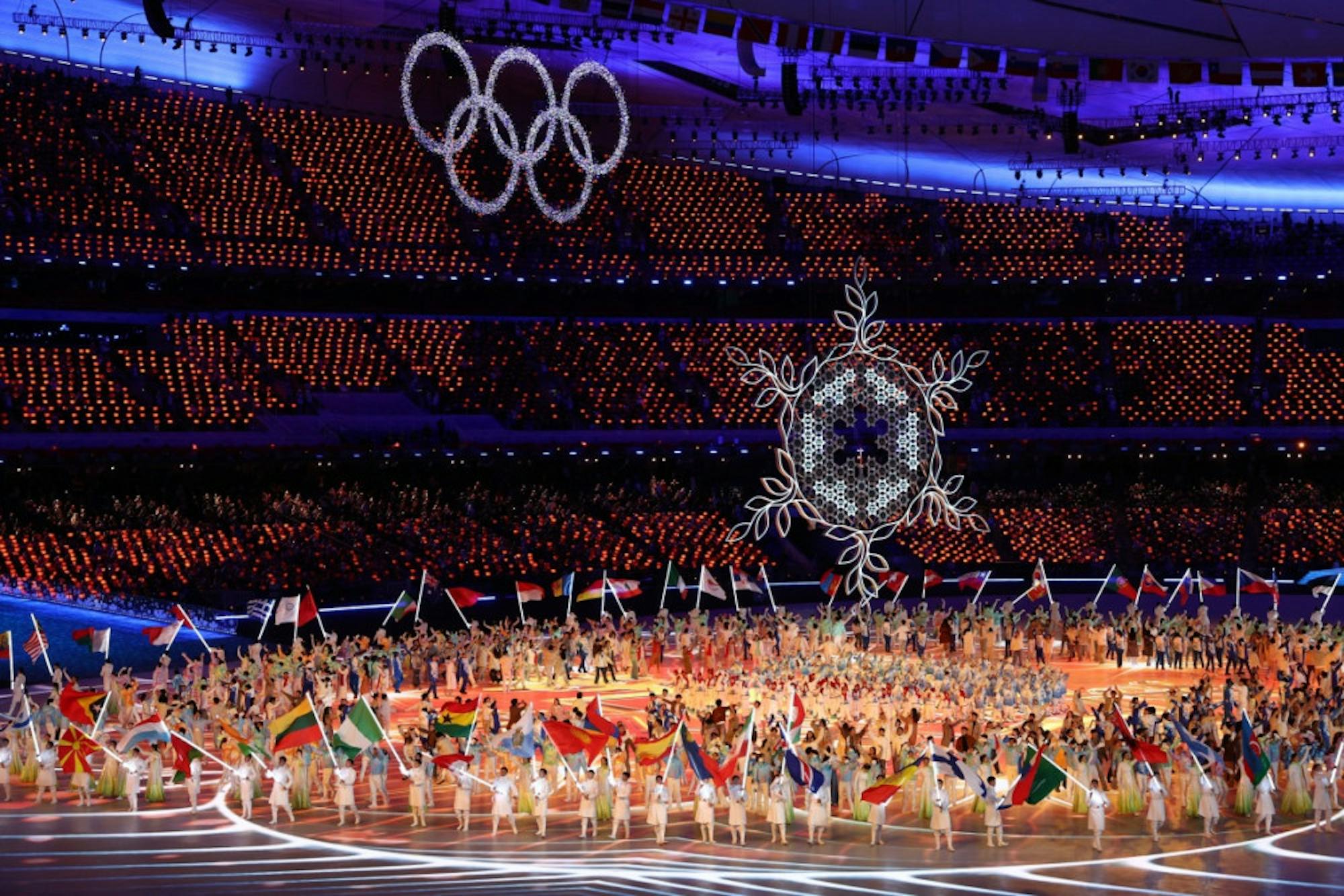It’s been nearly a decade since the International Olympic Committee formally made gender-balanced participation a goal. With the introduction of women’s monobob, women’s big air freestyle skiing as well as the addition of four mixed-gender events, the IOC is finally seeing progress; Beijing’s 2022 Winter Olympics was the most gender-balanced Winter Olympics in program history.
The women at these games have been remarkably successful — not only in participating but also in winning. Some highlights include: the United States' Erin Jackson becoming the first Black woman to medal in 500m speed skating; China’s Eileen Gu landing two golds and one silver medal, the first freestyle skier to take home three medals in one Olympics; Jessie Diggins overcoming a bout of food poisoning to become America’s most decorated cross-country skier; and the Canadian women’s hockey team taking down defending champion Team USA in a 3–2 thriller, bringing Canada's total medal tally in women's hockey up to five since the Olympic event debuted in 1998.
It’s difficult to capture the many accomplishments that women had at these games in one article, but three of the most compelling stories belong to bobsledder Elana Meyers Taylor, figure skater Kaori Sakamoto and alpine skier Mikaela Shiffrin.
Considering this was Elana Meyers Taylor’s fourth Olympics, she’s certainly a veteran in the field and is now the most decorated Black athlete to have competed in the Winter Olympics. This accomplishment is especially meaningful for Taylor, who had once been denied purchasing a sled due to her race.
To have accomplished this feat in bobsledding is especially remarkable; the sport is the ultimate test of athleticism. It’s like a physicist’s worst nightmare — one misstep or shift in weight could be the difference between a podium-worthy finish or a horrific crash.
How Taylor was able to help navigate a sled racing up to 90 mph to five medals in her Olympic career is unprecedented, and she made it look easy. Perhaps, what defines Taylor’s precise piloting work is her tenacity. She’s known for her discipline and ability to attack at crucial moments on the track –– a skill that often only comes with veteran experience.
While this is likely Taylor’s last Olympics, Japan’s 21-year-old Kaori Sakamoto remains hopeful for another Olympic run following her successful performance in Beijing with a remarkable bronze medal win in ice skating.
Sakamoto’s talent has flown under the radar for quite some time. She wasn’t expected to have even qualified to represent Japan at the last Olympic cycle in Pyeongchang. Her persistence allowed her to claim a spot on the national team, and her performance in Beijing is a true testament to her journey.
Opening with Imany’s, “No More Fight Left in Me” (2020), Sakamoto dedicated her performance to strong women in her life. From her opening double axel to her elegant triple flip-double toe loop combination, she demonstrated power, tenderness and discipline.
What her program may lack in highly technical combinations, she more than makes up for with artistry and flawless execution. Her performance showcased her quiet yet unwavering strength. Everyone expected the Russian Olympic Committee to sweep the women’s individual program. So, Sakamoto sobbing tears of disbelief after making the podium was likely the purest expression of joy that the sport has seen in recent memory.
This last Olympic story does not end with a podium winning finish, but it illustrates an aspect of the games that spectators don’t often get to glimpse. The United States' alpine skier Mikaela Shiffrin showed a distinctly human aspect of athleticism at this Olympics: the disappointment of not medaling and the challenge of facing that defeat on a global stage.
With 47 World Cup slalom wins, the most held in one event by any skier in the world, Shiffrin came to Beijing as the favorite for all five individual events she was competing in: giant slalom, slalom, super-G, downhill and the combined event. Alpine skiing in simple terms is like being forced to hold a squat in the freezing cold while gliding 40–80 miles per hour down a snowy slope.
The sport is especially precarious because failing to complete the marked course — or “skiing out” — during a race means automatic disqualification. Shiffrin shocked everyone, including herself, when she skied out of three of her five events and eventually left the 2022 Games without any hardware.
Yet, Mikaela Shiffrin’s record in Beijing does not define her career. It’s a reminder that there are no moments of greatness without moments of defeat.
Being the best in the world comes with a price — weighty expectations and criticism waged when those expectations aren’t met. With respect to the latter, Shiffrin has been candid about her experience with disappointment — offering a comforting sense of honesty in elite athleticism where defeat can often feel isolating. This won’t be the last the world will see of Mikaela Shiffrin — but even if it is,her contributions to the sport and to the Olympic mentality is historic and will remain a lasting legacy.






